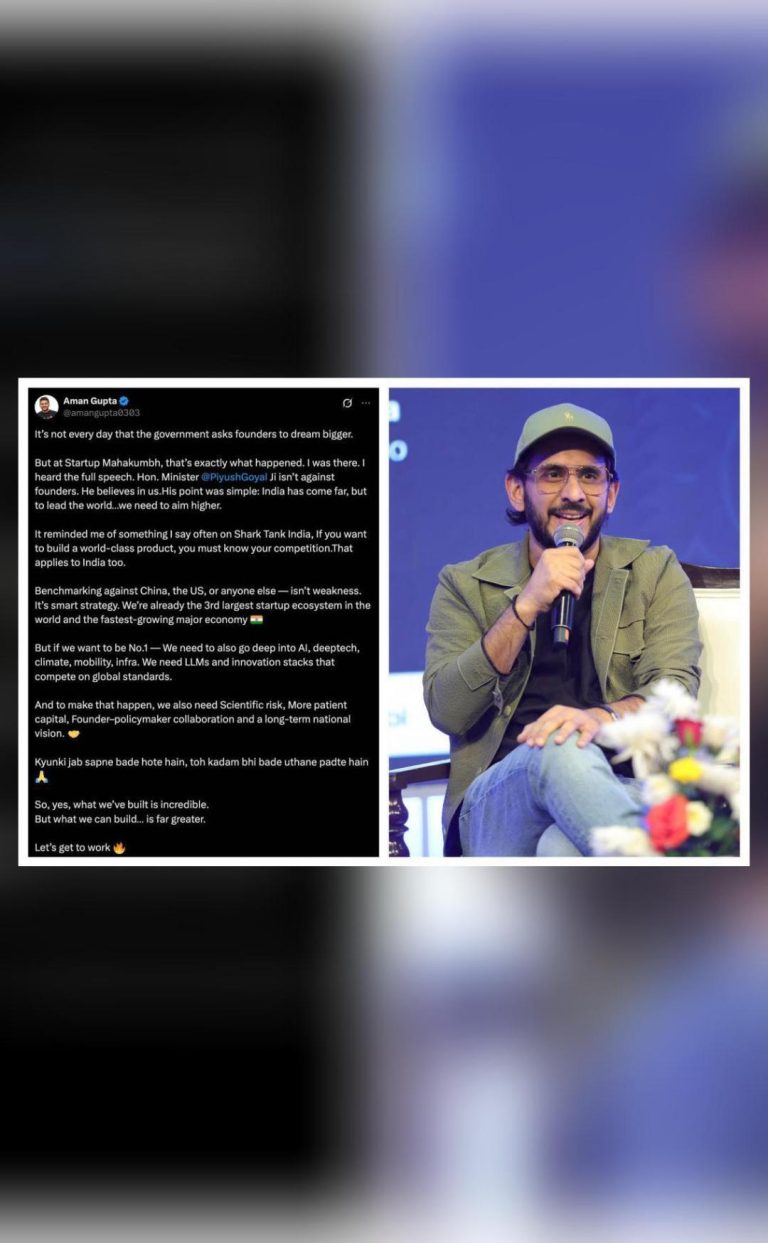
Grind for a decade, no one cares for 7.5 yrs & hates you for remaining 2.5 yrs: Altman
Sam Altman, the CEO of OpenAI, has been quite open about his experiences working at the AI startup. In a recent post, he shared a humorous yet relatable anecdote about how people perceive his journey. According to Altman, after dedicating 10 years to his work, most people didn’t care about the first 7.5 years, but suddenly developed a strong dislike for him during the remaining 2.5 years.
The post was shared on Twitter, where Altman wrote, “Be me, 10 years of grinding. For the first 7.5 years, nobody cares. Then for the last 2.5 years, everyone hates me.” The tweet was accompanied by a funny meme, showcasing a character waking up to hundreds of messages, with one comment standing out: “Look, I made you into a twinkle Ghibli style.”
Altman’s statement might seem surprising, especially for those who are not familiar with the startup world. However, his words resonate with many entrepreneurs, founders, and innovators who have dedicated their lives to building something from scratch. So, what does it mean to “grind” for 10 years, and why do people’s perceptions of you change over time?
The Grind
Grinding is a term commonly used in the startup world to describe the intense, often all-consuming effort required to build a successful business. It involves long hours, sleepless nights, and immense pressure to meet deadlines and achieve milestones. Grind is not just about working hard; it’s about being dedicated to your vision, persevering through challenges, and constantly adapting to changing circumstances.
For Altman, the grind began 10 years ago, when he co-founded OpenAI with Elon Musk, Peter Norvig, and others. During those early years, the team faced numerous challenges, from securing funding to building a team of talented engineers. The early days were marked by uncertainty, with many doubting the viability of the AI startup.
Nobody Cares
The first 7.5 years of Altman’s journey were marked by obscurity. Despite the team’s tireless efforts, the outside world barely paid attention. There was no hype, no fanfare, and no recognition. It was as if the team was invisible, working in a vacuum, with no one noticing their progress.
This is a common phenomenon in the startup world. Many entrepreneurs will tell you that the early years are the most difficult, with little recognition or reward for their hard work. It’s a period of intense focus, where the team is solely focused on building something from scratch, without expecting much external validation.
Hate and Recognition
Fast forward to the remaining 2.5 years of Altman’s journey. Suddenly, everything changed. OpenAI became a household name, with its AI language model, DALL-E, generating stunning images and videos that captivated the world. The team’s hard work and dedication were finally recognized, and Altman became a celebrated figure in the tech world.
However, it’s not just the recognition that changed; it’s also the way people perceive Altman. As the team’s success grew, so did the scrutiny. Critics began to emerge, questioning the ethics of AI, the potential risks, and the team’s motivations. Altman, as the face of OpenAI, became the target of criticism, with some even expressing hatred towards him.
This phenomenon is not unique to Altman or OpenAI. Many successful entrepreneurs have experienced a similar shift in public perception. As their success grows, so does the scrutiny, and often, the criticism can be intense and personal.
Conclusion
Sam Altman’s tweet is a humorous yet relatable commentary on the startup world. The grind is real, and it’s a journey that requires immense dedication, perseverance, and resilience. The early years are marked by obscurity, but the remaining years are often characterized by intense scrutiny and criticism.
As entrepreneurs, it’s essential to understand that the grind is not just about building a successful business; it’s also about building a reputation, navigating criticism, and adapting to changing circumstances. Altman’s words serve as a reminder that success is not just about achieving milestones but also about managing the perceptions of others.
Source:



